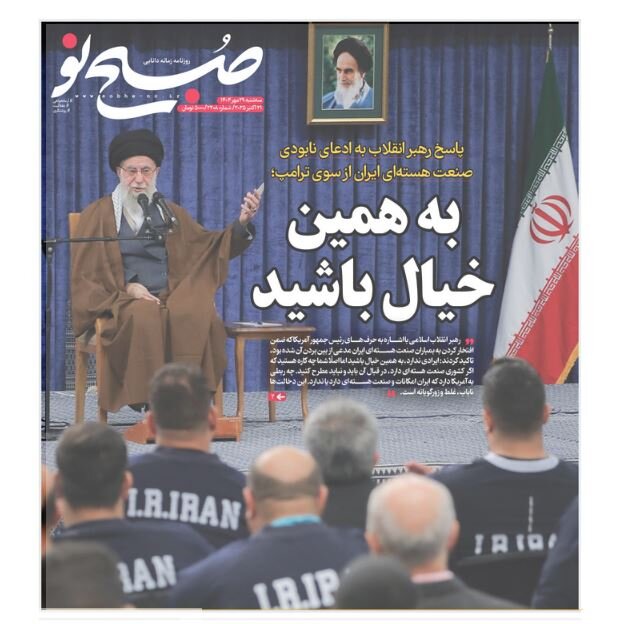The importance of China and Russia’s confrontation with the West

TEHRAN - Sobh-e-No examined the significance of China and Russia’s stance against the West, noting that both countries are fully aware of the political and economic costs of supporting Iran.
Nevertheless, Beijing and Moscow chose to openly defy Western pressure by signing a joint letter. This move carries weight on multiple levels. Politically, China and Russia signaled their refusal to remain subordinate to the Western-dominated framework of international policymaking. Their action reflects a broader effort to promote a multipolar world order. Legally, the letter represents full endorsement of Iran’s interpretation regarding the automatic expiration of UN Security Council Resolution 2231. Strategically, it sends a clear message to Washington that any attempt to reinstate sanctions through the Security Council will be met with a veto from both Russia and China. In this joint statement, China and Russia not only defended Iran’s position but also challenged the credibility of the Security Council itself. They argued that continued Western maneuvering within the Council undermines the legitimacy of the entire UN system.
Resalat: Europe is caught in its own trap
In a recent note, Resalat addressed the legal and strategic deadlock facing the United States and the European troika. The impasse has led to confusion in their approach to Iran, stemming from three key developments: the formal collapse of the JCPOA, the expiration of Resolution 2231, and the refusal of China and Russia to support the reactivation of the snapback sanctions. Legal experts argue that this convergence of factors has created a volatile and unpredictable situation for the West, disrupting the scenario envisioned by the U.S., Germany, France, and the UK. From the standpoint of international law, any effort to reimpose sanctions through the Security Council would require a new resolution; an outcome rendered virtually impossible by the positions of Russia and China. Europe, having contributed to the current
Ettelaat: News manipulation to put pressure on Iran
Ettelaat examined the publication of a news that an Iranian oil tanker had been hit in the Gulf of Aden by an American submarine and wrote: Just one day after the announcement of the expiration of Resolution 2231 and an official statement by Iran, China and Russia that they don’t not recognize the European troika’s action (in invoking the snapback sanctions) , foreign media outlets, including the Qatari Al Jazeera network, claimed that the Iranian oil tanker had been targeted, which was denied by Iranian media. The media coverage of this report strengthened the speculation that the West, and especially the Americans, are seeking to keep alive the psychological effect of the activation of the snapback sanctions against Iran and to insinuate that the conditions are going to become more difficult for Iran. The reality is that Iran is no stranger to these pressures and threats. Threatening Iran cannot meet the West's plan to weaken Iran; and on the other hand, any actions will lead to a tougher and more complex response from Iran.
Hamshahri: Why is America looking for a proxy force?
Hamshahri addressed Donald Trump’s interview with Fox News on October 20 that the Zionist regime of Israel is a US "proxy". The newspaper wrote: Although the Zionists are trying hard to pass off the Palestinian land as their own country, the admission by Western officials indicates that Israel is not actually a country, but a proxy actor for Western governments. It is as if the Zionists are the agents of Western countries in the Middle East. Over the past few decades, it seems that American hegemony in the region has been declining. The decline of American hegemony in the region is one of the reasons that has led Washington to count on Israel's actions in the region to secure American interests. With the decline of American hegemony in the Middle East, its rival powers such as China and Russia have filled the power gap. Given the turbulent situation in the Middle East, American elites have adopted the policy of strengthening Israel in different ways. From Trump's withdrawal from the 2015 Iran nuclear deal to Biden's unconditional support for Israel in the Gaza war, it is clear that American foreign policy is completely subordinate to the interests of its proxy, Israel.
Dony-e Eghtesad: Policy of subsidized gasoline and challenges
Dony-e Eghtesad wrote: The policy of gasoline price subsidies has been one of the challenges facing Iran's economy in recent years. This subsidy paid by keeping the gasoline price unchanged over the years, has resulted in the poorest people receiving the least benefit from it. Instead, high-consumption users are reaping the most benefit from it. Furthermore, paying this subsidy places a heavy financial burden on the government, which ultimately shows itself as a budget deficit and increased inflation, with the poor people bearing the cost of this inflation. Economics professor Mousa Ghaninejad says there is no alternative other than reforming the gasoline price in the long run.
Leave a Comment